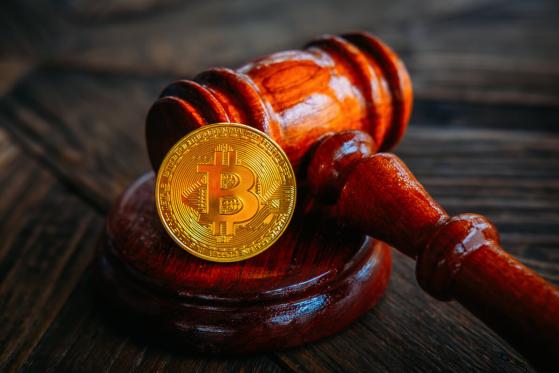Bitcoin and Ethereum finally got some much-needed news to move their prices higher Thursday, and it came from a key official with the U.S. Securities and Exchange Commission.
William Hinman, the SEC’s head of the Division of Corporate Finance, said that Bitcoin and Ethereum should not be regulated as securities, however other cryptos are likely securities.
Hinman’s announcement is considered to be the official position of the SEC.
For many in the crypto space, this was music to their ears, causing them to buy.
At press time, Bitcoin’s price was up about 5.26%, while Ethereum’s price was up about 8.31%.
Let’s discuss
The speech heard around the crypto world
Hinman spoke about the issue at the Yahoo (NASDAQ:AABA) All Markets Summit: Crypto conference in San Francisco. During his speech, Hinman said that while Bitcoin and Ethereum were not considered to be securities, other cryptos, as well as ICOs were securities.
It all boils down to the way in which the token is sold, promised and behaves. Hinman sees decentralization as key in making the determination.
Hinman said the main reason the SEC has chosen not to regulate Bitcoin and Ethereum as securities relates to the highly decentralized nature of their networks.
“We don’t see a third party promoter where applying a disclosure regime would make a lot of sense. So we’re comfortable in viewing these as items that don’t have to be regulated as securities.”
Hinman added:
“If there is a centralized third party, along with purchasers with an expectation of a return, then it is likely a security.”
What about ICOs?
With ICOs, the determining factor boils down to whether there is an expectation of a return by a third party. Even more so, the determination must be based on whether someone sponsored the token’s creation and played a significant role in that creation.
Hinman admitted there was no simple way to determine what is a security and what is not.
However, the SEC has come up with a rule of thumb.
“A key factor is whether there is a third party promoter who knows much more about the instrument than investors might, and if that’s the case, that’s a sort of initial indicator that we might have a securities transaction.”
He added that if people are buying the token for an investment and return and are looking to that party for a return, then that is an indicator of it being a security.
“On the other hand, if you have a token that’s just used on the network for a good or service and that’s why people are buying it and that service is available and up and running and not under development, then you may not have a security.”
Down the road
Hinman seemed to recognize that there still will be questions over what the SEC constitutes as a security and what it does not. For that reason, the SEC stood prepared to provide more formal interpretive or no-action guidance about the proper characterization of a digital asset in a proposed use.
Then there’s the matter of how a digital asset’s status could change over time. About this he said:
“Can a digital asset originally sold in a securities offering eventually be sold in something other than a security?” How about cases when there’s no longer a company [involved]? I believe in those cases answer is a qualified yes.”
He said that over time, there may be other sufficiently decentralized networks and systems where regulating the tokens or coins that function on them as securities may not be required.
"There is excitement and a great deal of speculative interest around this new technology. Unfortunately, there also are cases of fraud."
This article appeared first on Cryptovest
